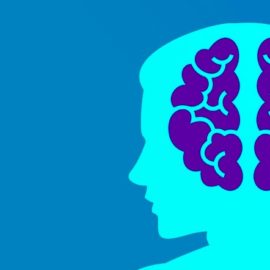

This article gives you a glimpse of what you can learn with Shortform. Shortform has the world’s best guides to 1000+ nonfiction books, plus other resources to help you accelerate your learning.
Want to learn faster and get smarter? Sign up for a free trial here .
Do you want to open your mind to new ideas? What are the best books to expand your knowledge?
Knowledge is one of the most powerful things in the world. Without it, we wouldn’t have scientific discoveries or such a rich history. If you want to learn more about yourself and the world, you need to check out some books that will expand your knowledge.
We’ve compiled a list of the best books to expand your knowledge, categorized into three subjects: science, psychology, and history.
Books About Science
There are always new discoveries in science that make us rethink everything we thought we knew about the world. Theories about the universe, death, and our bodies push scientists to write about what they’ve found and share it with the world. If you want to get insight into the most amazing scientific facts and theories, read these nine books to expand your knowledge.
The Beginning of Infinity is a counterargument to the belief—advanced by numerous scientists and philosophers throughout history—that there is a finite amount of knowledge in the universe. Theoretical physicist David Deutsch rejects the idea that humanity will someday know everything there is to know, and he explains why this belief is not only wrong, but harmful.
Deutsch argues instead that there’s no limit to knowledge because rather than simply “finding” it, we constantly create it through questions, studies, and calculations. And because there’s no limit to the knowledge we can create, there’s no limit to how much we can improve the world.
What’s out there in the vast reaches of space? Are we alone in the universe? Renowned astronomer Carl Sagan offers some insight into these questions and many more in his widely acclaimed book, Cosmos.
Sagan is a Pulitzer Prize-winning author and perhaps the greatest astronomer of our age. In this book, he provides a comprehensive description of the science, philosophy, and history of astronomical discovery, from ancient Ionia to the time of the book’s publication in 1980.
In this book, Sagan delves into theories about the possibility of interstellar travel, the search for extraterrestrial life, and man’s quest for understanding the mysteries of the universe.
Brief Answers to the Big Questions
Theoretical physicist Stephen Hawking is best known for his expertise on black holes, quantum gravity, and general relativity, but his writing often addresses philosophical questions as well. In Brief Answers to the Big Questions, Hawking explains why he believes science can answer philosophical questions better than religion can. He then discusses where the human race came from and where he thinks we’re going. In particular, he highlights how colonizing outer space is important for the future of humankind.
Seven and a Half Lessons About the Brain
In Seven and a Half Lessons About the Brain, neuroscientist Lisa Feldman Barrett sheds light on the inner workings of the brain and how they impact feelings, behaviors, and relationships. While providing an entertaining peek behind the curtain, she argues that by understanding the basics of how your brain works, you can take a more active role in deciding how to think and behave. Barrett’s book is a collection of eight informal essays—one for each lesson
For all of recorded history, people have seen aging as an inevitable fact of life. Biologist and geneticist David Sinclair disagrees: He believes that old age is a deadly disease, and he’s dedicated his life to curing it.
Sinclair is a professor of genetics and co-director of the Paul F. Glenn Center for Biology of Aging Research at Harvard University. He argues that it’s not only possible—but inevitable—that we’ll learn to overcome the aging process. New medicines and technologies will increase our maximum lifespan and years of health until eventually, humans won’t have a maximum lifespan—we’ll stay young and healthy forever.
In Lifespan: Why We Age and Why We Don’t Have To, Sinclair discusses why aging happens, how we can prevent it, and how we might create a world where nobody has to die of old age.
Are trees competitive or cooperative? In Finding the Mother Tree, ecologist Suzanne Simard delves into this question. Scientists and foresters have typically thought of trees as competing for water, sunlight, and nutrients, and they’ve favored growing marketable species while eliminating presumed competitors. However, ecologist Suzanne Simard explains in Finding the Mother Tree that trees in a forest are interconnected—they communicate and share resources through a complex underground network of fungi.
In this book, Simard shows how her research has led to a shift in thinking about ecological relationships. She explains how fungi work to connect the plant life in the forests, how “Mother Trees” take care of their communities and their offspring, and why the prevailing competition paradigm is shortsighted.
Are spicy foods bad for you? Can sleep deprivation be fatal? In The Body, bestselling author Bill Bryson takes the reader on a whirlwind tour of the human body’s various systems. He examines how they work, how they can fail, and what can be done to fix them when that happens.
In this book, you’ll learn why your sense of smell is probably as good as your dog’s, how hot peppers increase your life expectancy, and why you should let your teenager sleep in.
A Brief History of Time is an exploration of the forces that govern our universe. At the heart of it all is the search for a theory that explains the history and evolution of our universe—how it began, how it works, and what the future might hold for it. We journey to the vast reaches of the observable universe and inside the very tiniest particles that comprise its building blocks as we explore the nature of time and space, the origins of our universe through the Big Bang, the forces that give rise to phenomena like black holes, and the possibilities of time travel.
In Sapiens, Yuval Noah Harari uses concepts from biology, history, and economics to tell the story of us, Homo sapiens. Harari takes us on a journey that starts 2.5 million years ago, when Sapiens make their historical entrance, and ends in the future, when the creation of an artificially created superhuman race may mark the end of the Sapiens species. Along the way, we learn how our ability to create imagined realities led to our dominance over other species. We watch as the Agricultural Revolution, the Scientific Revolution, imperialism, capitalism, and the Industrial Revolution change our species in lasting, and not always positive, ways.
Ultimately, we’re left with one question: As we design our future, who do we want to become? Harari doesn’t give an opinion. Rather, he shows us that asking the right questions may be more important than finding the right answers.
Books About Psychology
The books listed above talk about the universe and human bodies, but what about our psyche? More importantly, what is it about our minds and social interactions that make us click? By reading these psychology books, you’ll learn more about yourself than you ever thought possible.
It’s difficult to imagine what kind of individual could commit humanity’s most evil crimes. Surely, no one we know could ever murder or torture an innocent person, right? In The Lucifer Effect, Philip Zimbardo, the psychologist famous for running the notorious Stanford Prison Experiment, argues that most of us drastically misunderstand human evil. According to Zimbardo, we underestimate the potential for the circumstances of a given time and place to transform ordinary people into heartless killers. Not only does this misunderstanding cause many unsuspecting people to willingly participate in evil and abuse, but it also prevents us from identifying and putting an end to true sources of evil.
In this book, Zimbardo details the various circumstantial factors that can influence people to hurt others, illustrating them with examples from Zimbardo’s firsthand account of the Stanford Prison Experiment.
Men Are From Mars, Women Are From Venus
Imagine that men and women come from two different planets. When you think that way, it’s suddenly easier to understand why men and women tend to communicate differently, behave differently, and have different emotional needs.
In this book, author John Gray breaks down the primary differences between men and women and gives comprehensive advice for dealing with miscommunication, showing support to your partner in the way they crave, and being more fulfilled with your relationship. Find out why your husband pulls away just when you need him most, and why your wife needs to talk relentlessly about her feelings.
This book answers the simple but essential question: Why can’t we all get along?
Moral psychologist Jonathan Haidt explains why people around the world, including liberals and conservatives in the United States, have different moral frameworks. He argues that moral judgments are emotional, not logical—they are based on stories rather than reason. Consequently, liberals and conservatives lack a common language, and reason-based arguments about morality are ineffective. This leads to political polarization.
The Righteous Mind explores how our divergent moralities evolved, why morality is about more than just fairness, and how we can counter our natural self-righteousness to decrease political divides.
Do you get irritated, angry, anxious, or emotional more easily than you would like? Mindfulness meditation may be worth trying. Being mindful means observing your thoughts and emotions as they arise, without succumbing to your typical knee-jerk reactions. You discover the roots of your anger, greed, and selfishness, and you learn to banish these psychic irritants. Ultimately, you become more at peace and friendlier to other people.
Mindfulness in Plain English is an approachable introduction to mindfulness and meditation. These are practical tips and are truly written in plain English with little spiritual mumbo-jumbo. Inside are practical tips on how to start meditating and deal with common problems.
Each of us houses a psychological Chimp inside our brains, primitively reacting to the world and spurring us to act emotionally, impetuously, and irresponsibly. If you’ve ever struggled to stay in control of your urges, succumbed to temptation, or sabotaged your own success, your Chimp has probably taken the reins for a bit. Fortunately, our brains also have an inner Human who, when functioning properly, keeps our inner Chimp under control and allows us to interact with the world in a stable, positive, productive way.
In The Chimp Paradox, psychiatrist Steve Peters outlines a mind management program that can help you manage your inner Chimp and lead you to happiness, success, and a sense of balance between your emotional and thinking selves.
Anxiety is sneaky. It lives in our thoughts and habits, and it can show up as a stomachache or a 3 a.m. Netflix binge. But according to Dr. Judson Brewer, you can recognize and counteract anxiety using mindfulness—the practice of paying close attention to the present moment without analyzing or judging it.
In Unwinding Anxiety, Brewer explains how anxiety becomes a habit and how it spawns additional habits that only make things worse. Brewer draws on his background as a psychiatrist, neuroscientist, and mindfulness researcher to show why mindfulness succeeds where traditional methods like willpower, substitution, and avoidance fail.
Predictably Irrational takes a close look at the common pitfalls of human logic and explores the forces that are really driving your everyday actions. You’ll learn why keeping your options open may actually diminish opportunities, why you’re more likely to be satisfied with your meal if you order first, and how your real estate agent might be making your decisions for you.
This dive into the discrepancy between how we should act and how we do act will arm you with the knowledge necessary to notice your irrational behaviors and make conscious efforts to improve your decision-making skills.
Books About History
Memoirs, biographies, and historical books are great resources to learn about history. Important people and events in the world will never be forgotten thanks to written accounts. To reflect on the past and how humanity got to where it is today, read these books to expand your knowledge of history.
A ship sets out from London in 1914 carrying 28 men hoping to reach Antarctica and make the first trek across the continent by foot. But they never make it to Antarctica. The unforgiving ice pack destroys their ship, and they must make their way back to civilization through ice and open seas on sleds and three lifeboats. The men owe their incredible survival in the world’s most inhospitable conditions to the expedition’s leader: Ernest Shackleton. This is the true story of the Endurance crew, written in 1959 by journalist Alfred Lansing, using primary sources such as the crew members’ diaries and interviews with survivors.
In Leonardo da Vinci, Walter Isaacson narrates the life, accomplishments, and struggles of the Italian painter, engineer, and scientist—the ultimate Renaissance man. He traces Leonardo’s evolution, finds explanations for his flaws, and extracts lessons from his life and work that you can apply to your own.
Isaacson believes that making cross-disciplinary connections is at the core of being innovative, creative, and, ultimately, a genius. There’s no better example of this than Leonardo da Vinci. His studies in science, engineering, and art helped him satisfy his curiosity and understand the world around him, and they contributed to making his masterpieces scientifically accurate, innovative, and intriguing.
Isaacson’s biography of the genius explores the known facts of Leonardo’s life, the key elements of his genius, and the lessons you can learn from him.
Hidden Figures: The Story of the African-American Women Who Helped Win the Space Race tells the story of a group of African-American women who, for over 25 years, made major contributions to the US space program. Working in the American South during the Civil Rights Era, they overcame both race- and gender-based discrimination to launch brilliant and storied careers as mathematicians and engineers. These women were the unsung protagonists who shaped America’s destiny, playing a major role in the great drama of the nation’s history.
The 1619 Project is an anthology of essays edited by Nikole Hannah-Jones and co-created with the New York Times that seeks to reframe American history with the institution of slavery at its core. The book asserts that American history began in 1619 with the arrival of the first ship of enslaved Africans, one year before the Mayflower arrived. It also argues that, American democracy and the prosperous nation we know today were largely built by enslaved Black Americans but that this demographic is almost entirely excluded from America’s founding stories and remains suppressed today due to racist institutions that persist from slavery.
This book reframes America’s founding story by exploring how the institution of slavery has impacted our economy, laws, society, and the livelihoods of Black Americans. It concludes by discussing Hannah-Jones’s recommendations for how the government can make reparations for these injustices. Throughout the guide, we’ll provide a broader perspective by discussing accounts from other historians, economists, and researchers.
Many consider Abraham Lincoln the greatest US president of all time. He held the presidency from 1861 to 1865, and during that time, guided the Union to victory in the American Civil War and signed the Emancipation Proclamation—a document that began the process of ending chattel slavery in America. But, in Lincoln on Leadership, author Donald T. Phillips doesn’t just focus on what Lincoln did—he also focuses on how he did it.
In Lincoln on Leadership, Phillips explores the main components of Lincoln’s leadership style that he identifies in the book: how he communicated, acted ethically, and made his decisions.
The Diary of a Young Girl is one of the most acclaimed works of the 20th century. Written by Anne Frank from 1942 to 1944, the diary reveals the humanity of those who suffered at the hands of the Nazis during their occupation of the Netherlands. Anne wrote about her experiences with anger, love, puberty, and fear as she and her family hid from an occupying force that wished to see her and her Jewish counterparts dead. Tight quarters, limited food, and the inability to go outside took an emotional toll on Anne and her fellow residents. This led to tensions that reflected the raging war taking place outside of their hiding place.
Killers of the Flower Moon: The Osage Murders and the Birth of the FBI is about the Osage Reign of Terror—the 1920s organized killings of members of the oil-rich Osage Indians. Powerful and bigoted whites systematically exploited and murdered the Osage people to expropriate their wealth, showing us the horrors that result when racism and greed align. The murders were also a major catalyst for the growth of the FBI, and the triumph of its rational and scientific vision of law enforcement—and a shift away from the era of frontier justice, corrupt and incompetent local sheriffs, and rogue “lawmen.”
What can you learn from 5,000 years of history? Are we in truly novel times, or do we face the same problems that the Romans and Egyptians faced 2,000 years ago?
Will & Ariel Durant, Pulitzer Prize-winning historians, are famed for writing The Story of Civilization, a massive 9766-page, 11-volume treatise of the entirety of Western history. Thankfully, they compiled the most important recurring patterns in history in this book, The Lessons of History.
Ray Dalio, the founder of the world’s largest hedge fund Bridgewater, considers this one of his 3 must-read books. In this book, learn
- How human nature hasn’t changed over thousands of years
- How societies cycle between wealth inequality and redistribution, like a heartbeat
- What repeatedly threatens democracy turns into tyranny
- Why all civilizations, including ours, fall, and why we shouldn’t cry about it.
Final Words
Reading has so many benefits, but one of the most important things you can gain from reading is rich knowledge. Thanks to so many insightful books, there’s a never-ending abundance of knowledge out there for you to grasp.
Do you know of any books to expand your knowledge? Leave your suggestions in the comments below!

Want to fast-track your learning? With Shortform, you’ll gain insights you won't find anywhere else .
Here's what you’ll get when you sign up for Shortform :
- Complicated ideas explained in simple and concise ways
- Smart analysis that connects what you’re reading to other key concepts
- Writing with zero fluff because we know how important your time is






